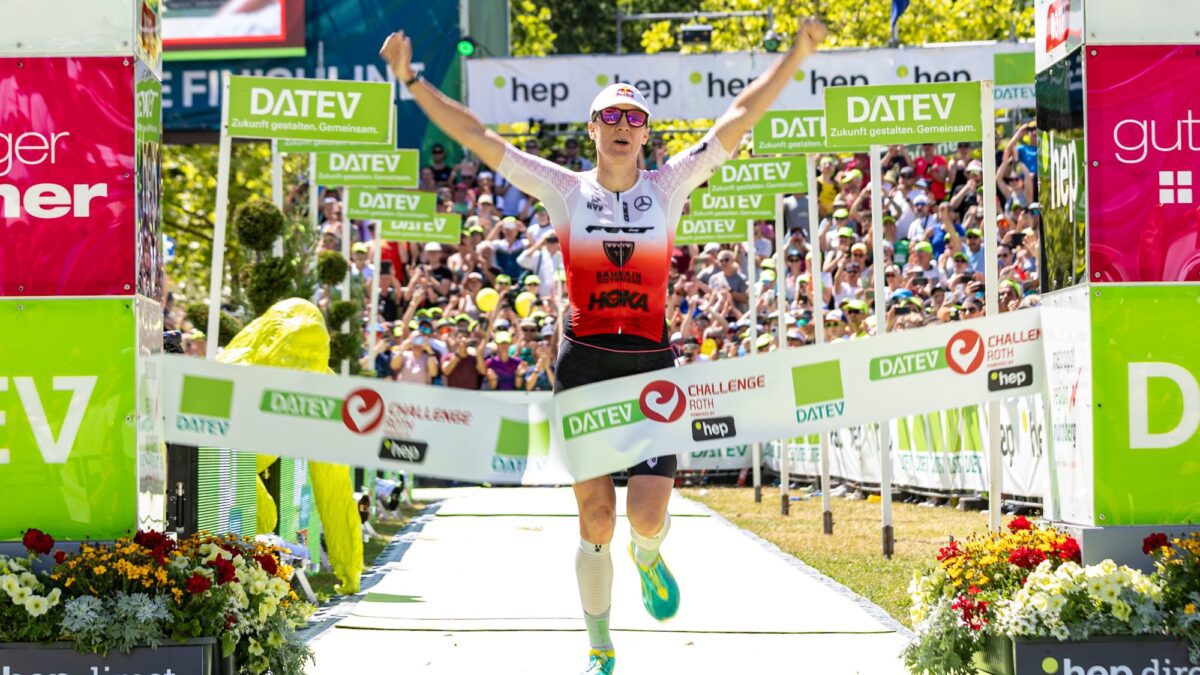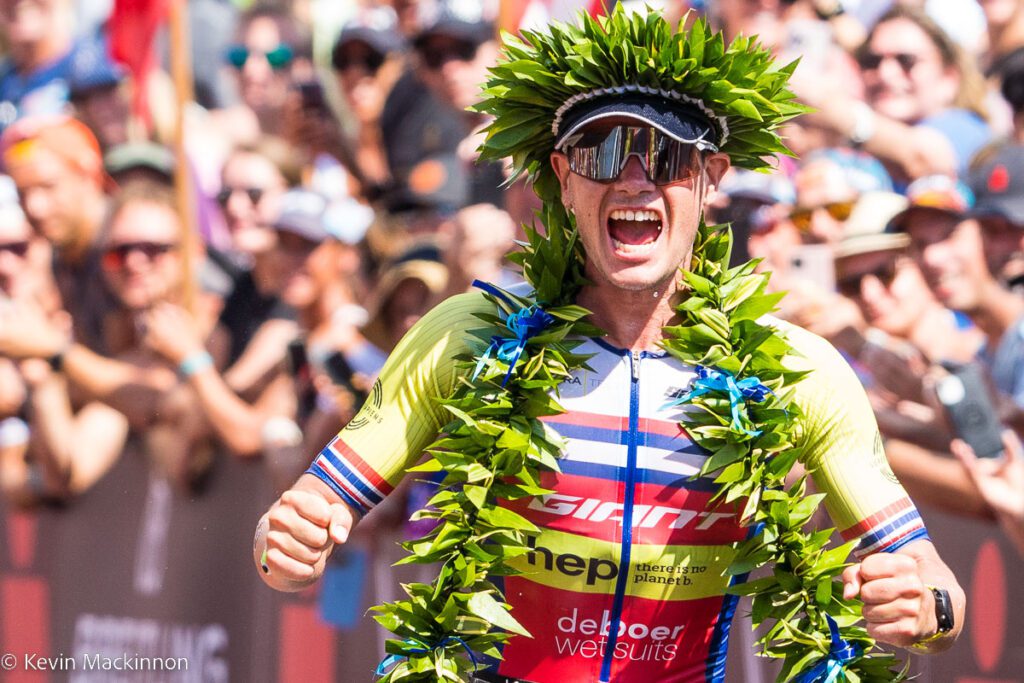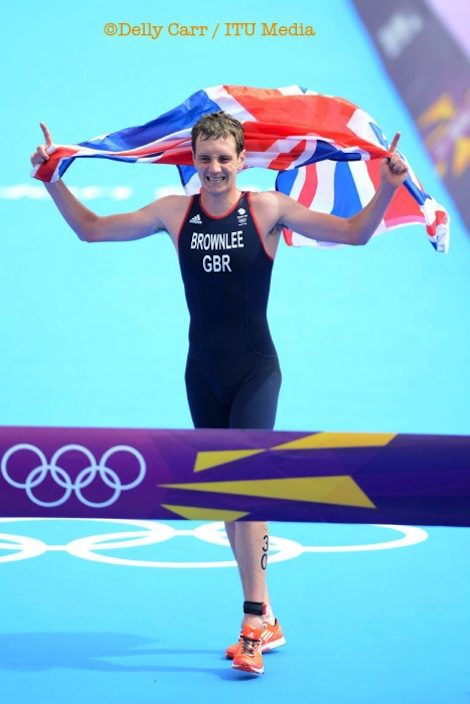What are the triathlon “world records” for each distance?
We try to assess what the world bests are for the sprint, Olympic, half distance, and full-distance
 Photo by:
Challenge Family/ Christoph Raithel
Photo by:
Challenge Family/ Christoph Raithel
The term “world record” is a tough one in triathlon given the complexity of the sport. In contrast to sports like swimming or athletics with strict distances, triathlon courses have looser regulations. Courses frequently seem to be short or long, some allow drafting on the bike and some do not. Then you have the issue of Ironman branded records versus “full-distance” records.
Then there are issues around the lengths of the courses, or mitigating factors that speed up parts of the race. Ironman Cozumel, for example, where Kristian Blummenfelt shattered the previous “world best” with his 7:21:12 performance, featured a down-current swim that made the swim times considerably quicker than other races. There’s also the Sub7Sub8 Project that allowed the athletes to draft behind a group of pacers on the bike that saw Kristian Blummenfelt blast to a 6:44:25 and Kat Matthews go 7:31:54. Neither of those times could be considered official records because of the pacing.
Given all this complexity, we attempt to break down the triathlon “world records” or “world bests” for the main four race distances. We will start with the full distance (often described as Ironman distance, or Iron distance) and work our way down through half-distance (often referred to as 70.3 distance), Olympic (officially referred to as Standard distance), and finally sprint.

Full distance (3.8 km-180 km-42.2 km)
Traditionally Challenge Roth has been the place to be to attempt a world best at the full distance, but as mentioned above Cozumel might now be a prime spot for super-speedy times.
Magnus Ditlev tops again at Challenge Roth, shattering Jan Frodeno’s course record
In 2023 Magnus Ditlev set a new course record at Challenge Roth, becoming the fastest man ever at an event that didn’t feature a down-river swim thanks to his 7:24:40 winning time that included a 46:47 swim, 3:57:45 bike and a 2:37:09 marathon. That broke Jan Frodeno’s 2016 record of 7:35:39.
On July 18, 2021, Jan Frodeno and Lionel Sanders took part in the Zwift Tri-Battle Royale. The race featured a velodrome-style turnaround ramp and moving aid stations – Frodeno and Sanders were able to get nutrition from motorcycles during the bike. At that race Frodeno went 7:27:53.
Related: Frodeno sets world best at Zwift Tri-Battle Royale
Tokyo Olympic gold medalist Kristian Blummenfelt blasted to a new “world best” at Ironman Cozumel on Nov. 21, 2021, but that race features a down-current swim – Blummenfelt was second out of the water in 39:41. (Compare that to Frodeno’s 45:58 at the Tri-Battle.) Blummenfelt followed that up with a 4:02:40 bike and a 2:35:24 marathon. Blummenfelt’s total time of 7:21:12 was almost seven minutes quicker than Frodeno’s, but much of that could be attributed to the swim. Ironman has since ratified that performance as the Ironman “world record.”
Women
In winning Challenge Roth in 2023, Daniela Ryf’s 8:08:21 shattered the 12-year-old record of 8:18:13 set by Chrissie Wellington in Roth in 2011 by almost 10 minutes.
Ryf’s splits included a 50:15 swim, a 4:22:56 bike and a 2:51:55 marathon.
Related: Chrissie Wellington’s stunning world record at Challenge Roth
Ironman branded best times
The fastest time at an Ironman-branded event is Blummenfelt’s 7:21:12 in Cozumel. Germany’s Laura Philipp came within seven seconds of Wellington’s world best time in winning Ironman Hamburg in 2022 – her time of 8:18:20 (54:38, 4:31:14, 2:45:38) is now the fastest women’s time ever at an Ironman-branded event, eclipsing Sweden’s Sara Svensk’s 8:22:41 in Cozumel on Nov. 20, 2021, where she enjoyed the same down-current swim that Blummenfelt experienced. Her split times were: 47:01, 4:33:10 and 2:58:02.
Prior to those record-setting performances in 2021 and 2022, the previous world-best times at official Ironman events were both set at Ironman Texas in 2018, where Australia’s Melissa Hauschildt went 8:31:05 and Matt Hanson went 7:39:25. Those results have not come without controversy, unfortunately. Amongst numerous issues on a day, the bike course was reportedly shortened to 110 miles (as opposed to the normal 112) and originally Ironman said it would not ratify any records. A few days later Ironman reversed that decision, which meant that Hauschildt broke Chrissie Wellington’s previous Ironman best time of 8:33:36 set at Ironman South Africa in 2011, while Hanson beat Tim Don’s record-setting time from Ironman Brazil in 2017 of 7:40:23.
Related: Ironman decides to recognize all records at Ironman Texas.
Ironman World Championship records

The famed race in Kona has seen a flurry of record-setting days over the last few years. In 2022 no less than four men managed to eclipse the previous record, with Gustav Iden (pictured above) leading the way with his 7:40:24 finish time. Behind him Sam Laidlow went 7:42:24, Kristian Blummenfelt rounded out the podium in 7:43:23 and Max Neumann took fourth, also finishing quicker than the old course record, in 7:44:44. The previous record was set by Jan Frodenoin 2019 – that year the German went 7:51:13 on the Big Island to break countryman Patrick Lange’s course record from the previous year of 7:52:39.
The women’s record is held by Daniela Ryf, who shattered the record she set in 2016 of 8:46:46 by over 20 minutes in 2018 with her 8:26:18 finishing time.
Fastest Canadian full-distance times:
The fastest Canadian men’s time was set by Sanders at the Tri-Battle Royale, where he went 7:43:30. Jen Annett set the fastest Canadian women’s time – 8:49:27 – at Ironman Texas. Heather Fuhr’s 8:51:22 at Ironman Austria in 2002 remains the second fastest Canadian time.
Half-distance (1.9 km-90 km-21.1 km)
Also easy one to figure out. Bahrain is where to go to set the half-distance world best. The race was formally a Challenge-branded event but now is an Ironman 70.3 race. The race also used to include a point-to-point bike course, which made for potential wind-assisted bike times.
Men
3:29:04 by Kristian Blummenfelt (2018) with a 21:36 swim, 1:56 bike, and 1:06 run at the Ironman 70.3 Middle East Championship in Bahrain.
Related: Blummenfelt’s new world-best time set in Bahrain
Women
3:55:50 by Helle Frederiksen (2014) with a 23:04 swim, 2:12 bike, and 1:17 run at Challenge Bahrain.
Related: Challenge Bahrain recap
Ironman-branded best time
Since Frederiksen’s record was set when the Bahrain event was run as part of the Challenge Series, some have credited Daniela Ryf with the fastest 70.3 time on record, based on her 3:57:55 winning time at Ironman 70.3 Gdynia in 2018.
Olympic/ Standard distance (1.5K-40K -10K)
This is where it starts to get tricky. There are professional races without drafting but the majority are now draft-legal. For simplicity sake we will ignore drafting vs. non-drafting and only report the fastest times. There is also the issue of course distances. For example the 2016 Rio Olympics featured a bike course of 38.48 km, not 40 km.
The 1996 ITU Triathlon World Championships in Cleveland, OH is where the discussion gets a bit muddy. Both the men’s and women’s Olympic distance records were set that day on a course that most figure was short. The bike course was most likely an inaccurate distance as many of the pro men biked under 50 minutes (This would be over 48 km/h on a 40K bike course). Here are some impressions of that day in Cleveland. If we assume the 1996 ITU Cleveland race is the correct “Olympic distance”, then the “world records” set that day are:
1:39:50 by Simon Lessing of Great Britain with a 18:24 swim, 49:40 bike, and 30:36 run.
1:50:51 by Jackie Gallagher of Australia with a 21:36 swim, 54:16 bike, and 33:32 run.

Men
For more course accurate Olympic-distance records, the current men’s record may have been set by Alistair Brownlee at the London 2012 Olympics with 1:46:25. With a swim of 17:04, bike of 59:08, and a 29:08 run (including a longer 43K bike course), this may be the closest we can get to a world record for Olympic distance. Also to be considered is the 2019 WTS Yokohama race, with Vincent Luis finishing in a super fast 1:43:21 with a 17:41 swim, 54:07 bike, and 30:21 run.
Women
The women’s record may be 1:58:27 by Emma Snowsill at the 2008 Beijing Olympics with a swim of 19:51, bike of 1:04:20, and run of 33:17. More recently at the 2019 WTS Yokohama race, Katie Zaferes raced a 1:52:12 with a 18:46 swim, 58:06 bike, and 34:07 run.
Sprint Distance (750 m-20 km -5 km)
This is also a tough one to assess as many of the multi-loop WTS courses are slightly short (example: 2014 ITU London WTS race)
Men
The sprint distance record may be held by Mario Mola at the 2018 ITU Edmonton WTS sprint race with a finishing time of 51:15. He swam 9:07, biked 26:24, and ran an incredible 14:25 to take the victory.
Related: WTS Edmonton recap
Women
This record might be Katie Zaferes at the 2019 ITU Abu Dhabi WTS sprint race with a total time of 55:31. She swam 9:08, biked 28:55, and ran 16:09 for the win.
